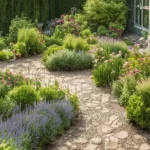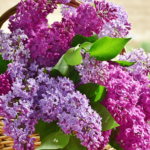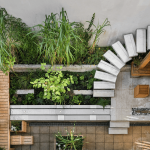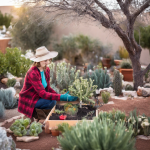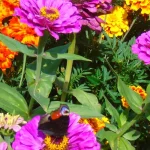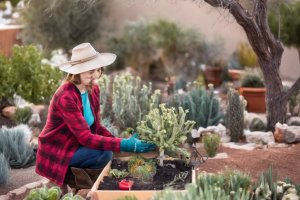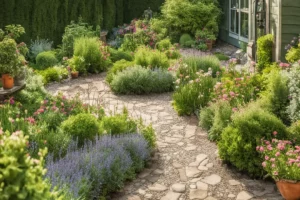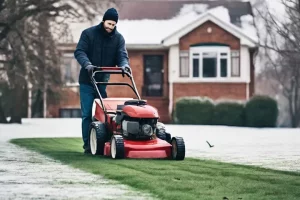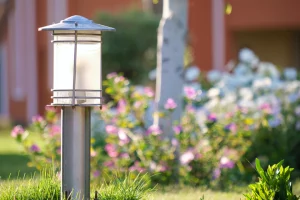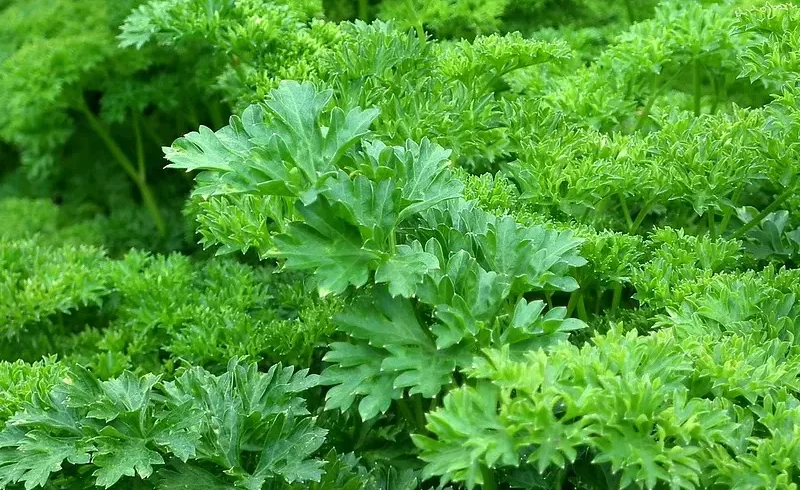
Introduction
In the gardening world, it's not just about what you grow but also how you grow it. This is particularly true when it comes to herb gardens. As it turns out, herbs, like people, have friends and foes. They thrive when planted with compatible companions and struggle when their neighbors do not like them. This concept, known as companion planting, can significantly impact the success of your herb garden.
The Social Dynamics of Herb Gardens
Herbs are more than just plants; they are social entities that interact with their surroundings. Just as we have friends who bring out the best in us and foes who bring out the worst, herbs, too, have companions that enhance their growth and pests that hinder their development. This explains why some herbs flourish while others falter when planted together.
For instance, basil, a popular herb in many gardens, can grow like gangbusters in the summer but can also overshadow and crush more delicate herbs like sage. Understanding these dynamics can help gardeners create more harmonious and productive herb gardens.
The Importance of Companion Planting
“Herbs have friends and foes,” explains Bri Murray, a horticulturist at Lukas Nursery in Oviedo, Florida. “Some hog water and root space and push others away. Some want dry soil and have no tolerance for their soggy neighbors. Some will even change the flavor of their neighbors.” Companion planting is key to cultivating herbs that coexist harmoniously, ensuring each plant has the ideal conditions to flourish. Understanding these relationships not only benefits herb gardens but can also inspire strategies for thriving lawns in hot climates, where proper plant selection and placement are crucial. By mimicking nature's balance, gardeners can create resilient ecosystems that support growth and productivity even in challenging conditions.
Knowing which herbs get along and which don't is crucial when planting your herb garden. Herbs that are friends can enhance each other's performance, while enemies can zap one another. For example, planting basil and tomatoes together can help repel pests and enhance the flavor of the tomatoes. On the other hand, planting dill and carrots together can attract the same pests, leading to competition and potential crop failure.
Despite their playground antics, herbs are among the easiest plants to grow for beginner gardeners. “An herb garden taps so many senses,” Murray says. “You touch them, watch them grow, and smell and taste them.”
Getting Started with Your Herb Garden
Starting an herb garden can be a rewarding endeavor. Not only does it provide fresh, flavorful additions to your meals, but it can also be a cost-effective and gratifying hobby. Here are some beginner tips for those who want to get their herb gardens off the ground:
- Get the dirt: Start with a container six inches deep with a drainage hole. Fill it with good quality indoor-outdoor potting mix. You can create your herb garden from seed or starter plants, but starting with young plants in summer is best.
- Indoors or out?: The beauty of an herb container garden is that it's portable. You can put it outdoors, indoors, or on the patio, as long as it gets sunlight. When the weather turns cold, move the container indoors by a window.
- Know the friend groups: A quick online search will help determine which herbs to pair and which to split up. One guideline is water preference. Some herbs like it dry, while others prefer more moisture. Try to keep the two distinct.
Conclusion
In the end, understanding the social dynamics of herbs and the concept of companion planting can make a significant difference in the success of your herb garden. So, the next time you're planning your herb garden, remember to consider what you're planting and who they're sharing their space with.
For more information, check out the original articles here and here.

James Smith is our editor. He is an accomplished and versatile news writer with over a decade of experience covering a wide range of topics, including politics, business, and real estate. Throughout his career, James has been dedicated to uncovering the truth and presenting unbiased, factual reporting to his audience.


